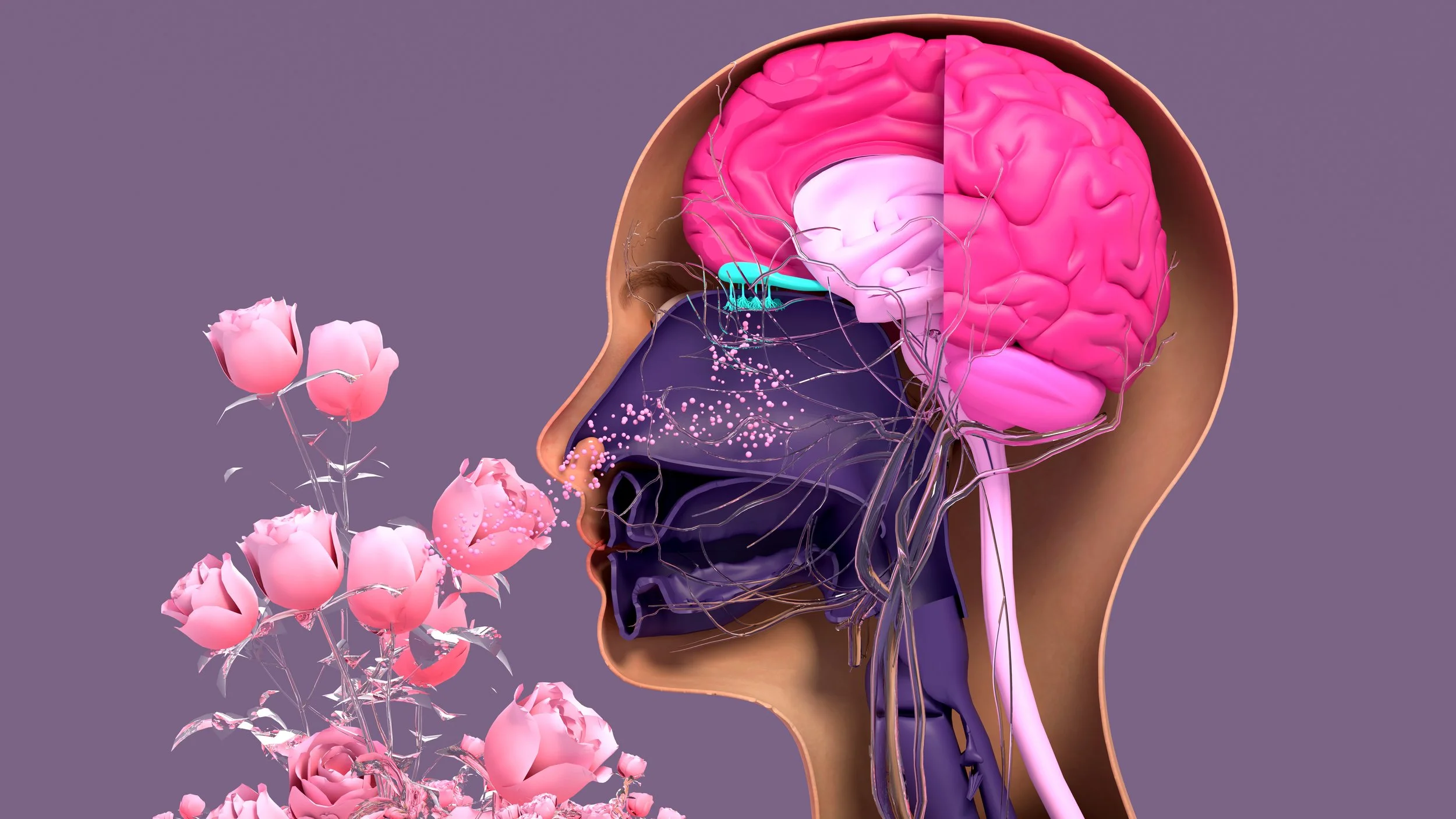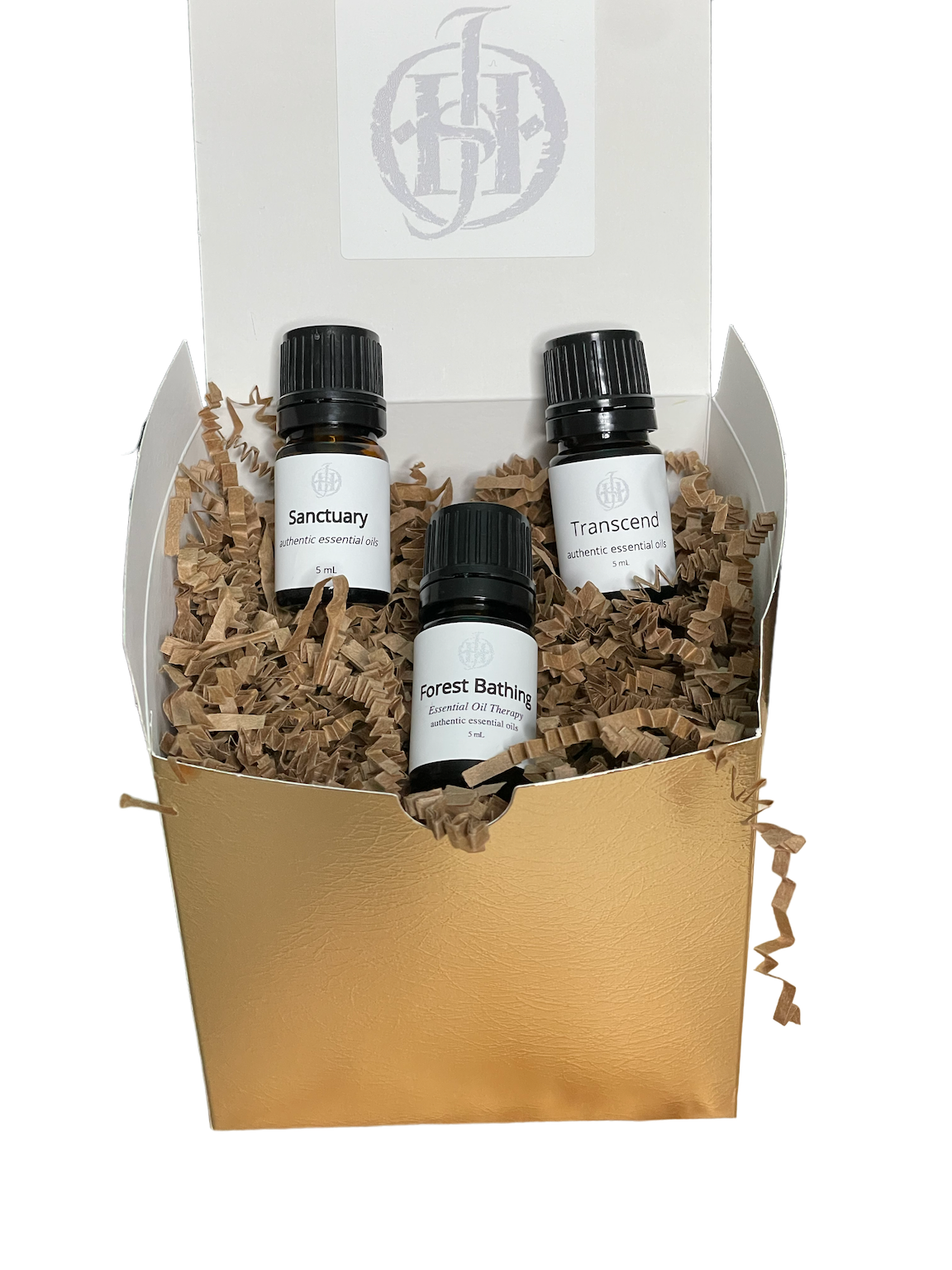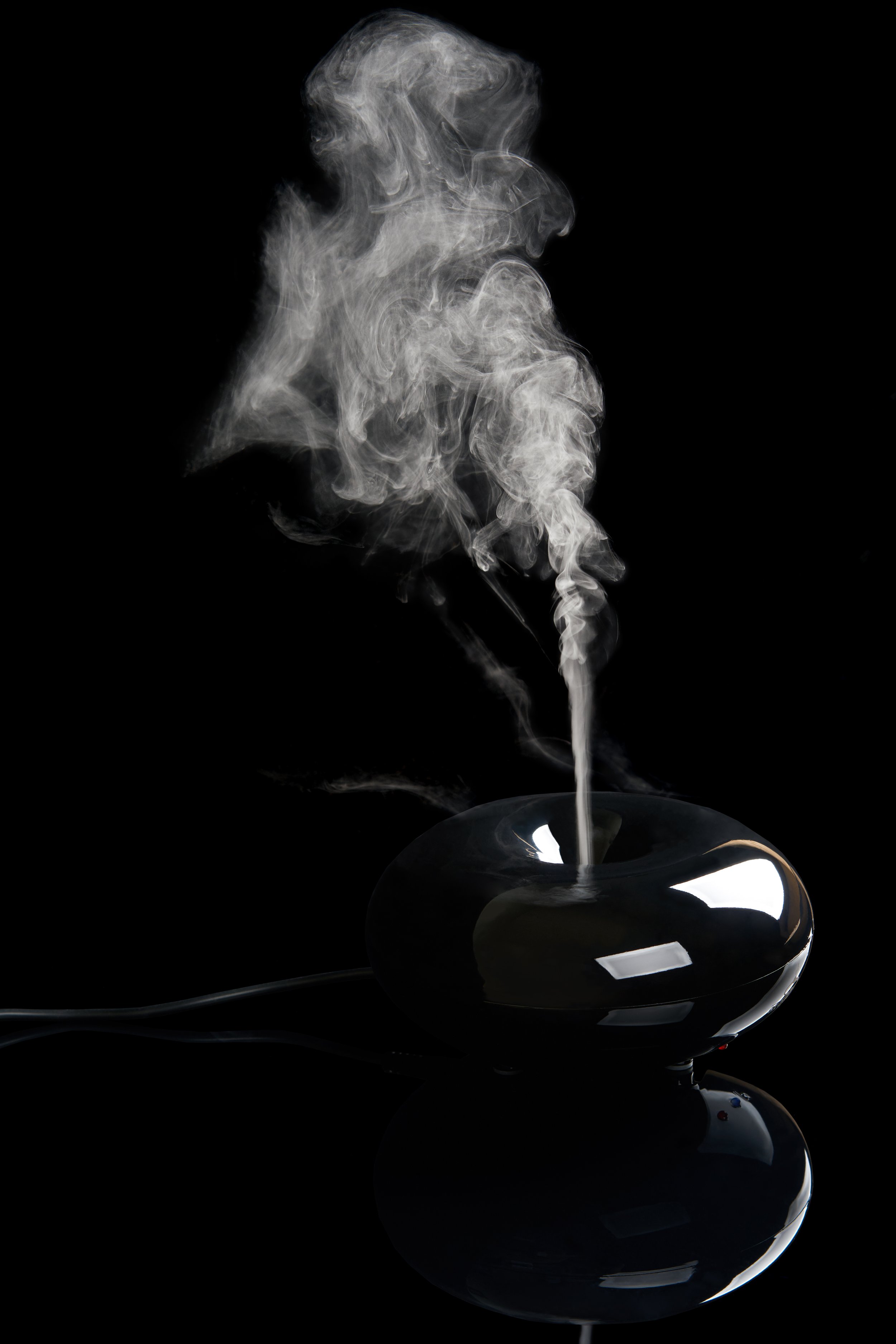Strengthen Cognitive Health Through Aromatherapy: The Science of Sleep, Scent, and Memory
Do you ever find yourself wishing you could hit the snooze button on cognitive decline? Well, it turns out the solution to maintaining cognitive health might be right under your nose. There’s a recent study from UC Irvine that everyone seems to be rather excited about. You’ll find lots of articles from medical magazines to lifestyle blogs covering it. The findings are pretty cool. Using scent when going to bed significantly improves cognitive health.
Now, combine this with the known results from studies showing how healthy sleep habits improve cognition, and I think we’re on a mission for fragrant restorative sleep. Let's explore this aromatic journey and boost your brainpower.
The Olfactory Study
First, let's look at the study. Researchers at the University of California, Irvine (Cynthia C. Woo, et al., 2023), conducted a project involving older adults, aged 60 to 85. They exposed these individuals to different fragrances each night while they slept. After six months of this aromatic journey, the results were undeniably remarkable. The group exposed to fragrances showed an extraordinary 226% improvement in memory compared to the control group. It's as though they unearthed the elixir of cognitive rejuvenation!
The VIP Route to Memory, Emotion and Brain Health
You may be intrigued by the remarkable role your sense of smell plays in memory. The explanation is elegantly simple: it maintains a direct connection to the intricate pathways of your brain's memory circuits. While the other senses take a detour through the thalamus on their way to your brain, your sense of smell enjoys a VIP express route. That's why olfaction, the sense of smell, is so elusive. Smell has direct access to the memory and emotional centers. This is how certain scents create a streaming video of childhood memories. Emotion, closely intertwined with scent, is an integral part of this sensory process, shaping your feelings long before conscious thought arises.
The memory connection isn't solely for indulging personal nostalgia. It is a robust biological function critical for our survival. Understanding the intricate relationship between scent, memory, and emotion is at the heart of my work in wellness and holistic beauty. Exploring the "how" and "why" of our olfactory experiences becomes a transformative tool for promoting healing in both body and mind.
The Cognitive Power of Olfactory Stimulation
We can go even deeper into the connection between olfaction and cognitive function. For clarity, this is not limited to essential oils. Any aroma can guide this sensory stimulation. I strongly advocate the use of essential oils, given their added therapeutic benefits that extend beyond olfactory function.
Numerous studies have looked into the practice of inhaling various aromas or essential oils throughout the day, revealing promising outcomes. Haehner et al. (2013) observed enhanced verbal fluency in Parkinson's patients after exposure to olfactory enrichment. Similarly, Birte-Antina et al. (2018) reported improved olfactory and verbal function, accompanied by reduced depression symptoms, in adults exposed to essential oils. Oleszkiewicz et al. (2021) noted significant cognitive enhancements among older adults exposed to diverse odorants. Haehner et al. (2022) highlighted improvements in olfaction and overall cognition, emphasizing the intricate link between scent and cognitive performance.
These studies underscore the remarkable benefits of scent on brain health, focus, cognition, and memory. The key to reaping these rewards lies in adopting a regular practice, akin to the methodologies applied in these scientific investigations. Keep it simple. Create a practice for cognitive well-being by inhaling a variety of scents, about 15 to 30 seconds, three times a day. Pay attention to any cognitive gains.
The Aromatic Symphony of Cognition and Age-Defying Scent
There’s a fascinating interplay between the sense of smell and the intricate web of brain health and cognition. As we gracefully journey through life, a subtle yet profound change takes place—the gradual fading of our sense of smell. This sensory shift holds the power to influence our brain function and emotional well-being in ways you might not expect. Studies show that losing your sense of smell correlates with a loss in brain cells. This reinforces the strong connection between olfaction and cognitive health. The ominous shadow of dementia often walks hand in hand with this sensory decline.
Studies reveal a two-way street in this olfactory odyssey. Loss of smell isn't just a consequence; it can be a catalyst. It can usher in unwelcome states of depression. Conversely, the heavy burden of depression can reduce the ability to smell, cloaking your world in a scentless veil. It's a remarkable example of how the function of olfaction transcends the mere appreciation of aromas. Scent is a therapeutic connection to brain health and emotional resilience.
Get to Sleep
By now, you've likely encountered the age-old wisdom that a good night's sleep is the foundation of cognitive prowess. Indeed, it’s the truth. It's not just about catching Z’s though. You’ll want to curate the perfect slumber sanctuary before you drift into dreamland.
The quest for restorative sleep isn't only about the number of hours you spend between the sheets. Sleep analysis has become a scientific art form. Quality sleep encompasses light exposure, sound and noise, and even the ancient practice of feng shui can dictate the harmony of your sleep haven. Then, of course, don’t underestimate the effects on sleep of your scent environment.
In aromatherapy, several essential oils are commonly recommended for assisting in healthy sleep. However, it's worth noting that the conventional suggestions, though popular, might not always provide the comprehensive solution you seek. If you're on a journey to unlock the full potential of your sleep environment, consider exploring the unconventional essential oil choices.
In my articles and dedicated course, "Better Sleep with Essential Oil Lifestyle Methods," I explore the nuanced world of sleepy-time essential oils, offering a broader palette of choices. The University of California, Irvine study adds yet another layer to the intricate tapestry of essential oil benefits. The methods I suggest have potential to enrich your sleep environment and your cognitive function.
Exploring the Spectrum of Fragrance
While the UC Irvine study highlights specific essential oils as effective fragrances, it's important to recognize that the world of aroma is vast and multifaceted. Understanding the relationship between the sense of smell, sleep, and cognition even extends beyond essential oils or natural scents alone.
In the pursuit of cognitive well-being, I unequivocally recommend and employ authentic essential oils. These from-nature extracts offer a holistic olfactory experience that synthetic alternatives simply cannot replicate. To fully understand this would require a discussion of intricate workings of the olfactory system, one that delves into the very essence of our sensory perception. I'll refrain, for now, from plunging into the depths of olfactory complexity.
Now, let's dip into the magic of turning scents into cognitive catalysts. In the UC Irvine study, participants were treated to a nightly olfactory rotation of seven essential oils: rose, orange, eucalyptus, lemon, peppermint, rosemary, and lavender. This aromatic rotation aligns seamlessly with my recommended approach— a practice that revolves around the science of olfaction and scent therapy.
It's crucial to recognize that these seven oils, while effective, aren't set in stone. The path to cognitive rejuvenation isn't bound by a strict itinerary. Essential oil choices are an exploration. Your scent journey should be as unique as your olfactory preferences.
Venture beyond your familiar scents and consider exploring blends or single essential oils that are new to you. This approach helps bypass any pre-existing memory or emotional connections associated with the chosen oils. While positive associations can be beneficial, trying unfamiliar scents opens a sensory gateway to uncharted cognitive territories, potentially leading to heightened awareness with each inhale.
The Cognitive Boost System
Here's how to apply this aromatic memory-boost in practice:
Select Your Oils: Choose authentic essential oils or blends. Opt for scents that not only have desired therapeutic properties but also resonate with your personal preferences.
Prioritize scents that evoke a positive feeling and comforting sensation. The therapeutic description becomes secondary. Trust your senses to guide your choices.
Having at least 4 to 7 blends, single oils, or both single oil and blends, at your disposal allows for nightly rotation.
Just Breathe: Inhaling essential oils can be achieved through various methods. A diffuser offers the best experience. Alternatively, place a few drops of your chosen blend on a tissue and position it nearby in your breathing space, ensuring it's detectable but not overpowering.
Investing in a diffuser is advisable, with a preference for one equipped with a rotation setting that cycles for 10 minutes, then remains off for 20 minutes before restarting in this pattern.
Whether using a diffuser or tissue method, make it a practice to rotate to a different fragrance each night for optimal results.
A Scent-Sational Future
In a world filled with daily hustle and bustle, it's all too easy to overlook the incredible power of your sense of smell. Now that you understand how scent can be a catalyst for boosting cognition, you can approach bedtime with an entirely new appreciation for the world of aromas. Sleep transcends mere rest; it's your daily opportunity for a cognitive boost. However, remember that the studies we discussed earlier suggest that the benefits of essential oils and scent aren't confined to bedtime alone. You can use their cognitive benefits throughout the day, allowing you to compose your cognitive masterpiece from sunrise to sunset.
As you settle into bed tonight, take a moment to contemplate the scents that could be enhancing your cognitive abilities. Your brain deserves this fragrant adventure, and you, my friend, deserve the sweetest of dreams. In the grand symphony of sleep, scent, and cognition, consider yourself the conductor. It's time to compose your masterpiece – one fragrant note at a time, leading to a future that's truly scent-sational.





